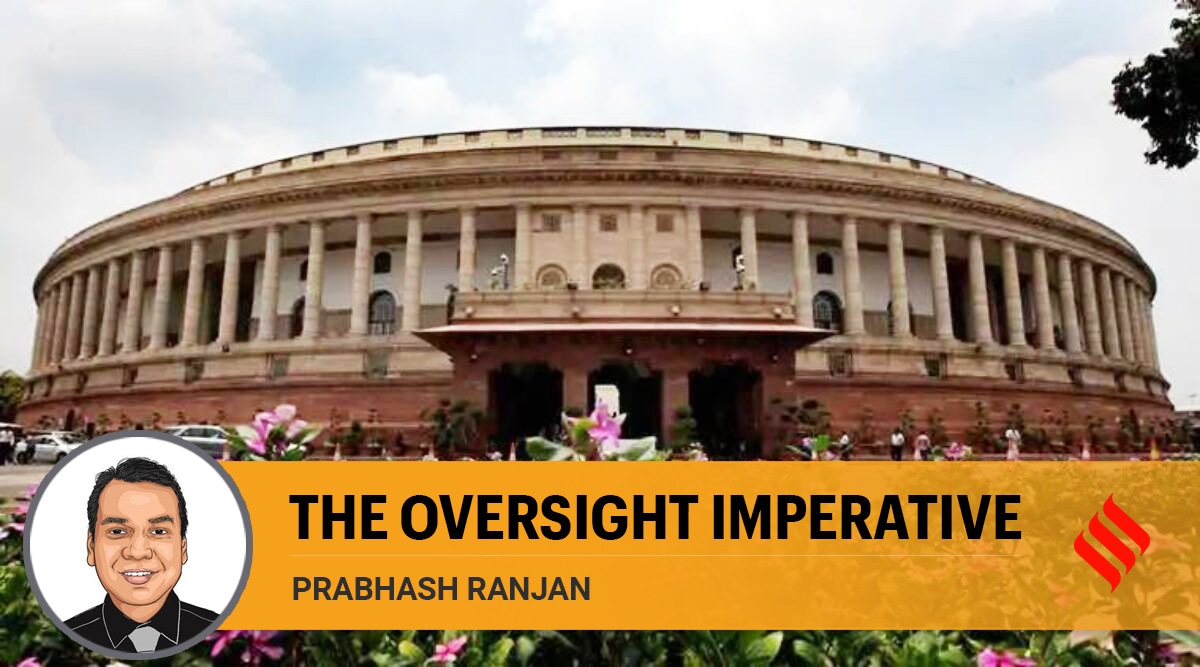 Shouldn’t Parliament exercise some control over the executive’s power to sign international treaties?
Shouldn’t Parliament exercise some control over the executive’s power to sign international treaties? India is negotiating and signing several free trade agreements (FTAs) with countries like Australia, the UK, Israel, and the EU. While the economic benefits of these FTAs have been studied, there is very little discussion on the lack of parliamentary scrutiny of these treaties. This gives rise to arguments of democratic deficit in India’s treaty-making process. Given the wide-ranging impact of trade and other economic treaties, the question is: Shouldn’t Parliament exercise some control over the executive’s power to sign international treaties?
In the Constitution, entry 14 of the Union list contains the following item — “entering into treaties and agreements with foreign countries and implementing of treaties, agreements and conventions with foreign countries”. According to Article 246, Parliament has the legislative competence on all matters given in the Union list. Thus, Parliament has the power to legislate on treaties. This power includes deciding how India will ratify treaties and thus assume international law obligations. This power includes Parliament’s competence to give effect to treaties within the domestic legal regime by enacting laws. Article 253 elucidates that the power of Parliament to implement treaties by enacting domestic laws also extends to topics that are part of the state list.
While Parliament in the last seven decades has passed many laws to implement international legal obligations imposed by different treaties, it is yet to enact a law laying down the processes that India needs to follow before assuming international treaty obligations. Given this legislative void, and under Article 73(the powers of the Union executive are co-terminus with Parliament), the Centre has been not just negotiating and signing but also ratifying international treaties and assuming international law obligations without much parliamentary oversight.
Best of Express Premium
Arguably, Parliament exercises control over the executive’s treaty-making power at the stage of transforming a treaty into the domestic legal regime. However, this is a scenario of ex-post parliamentary control over the executive. In such a situation, Parliament does not debate whether India should or should not accept the international obligations; it only deliberates how the international law obligations, already accepted by the executive, should be implemented domestically. Even if Parliament does not amend or make domestic laws to transform the treaty, the treaty will continue to be binding on India.
Concerns over the lack of parliamentary oversight were flagged by the National Commission to Review the Working of the Constitution, set up by the Vajpayee government more than two decades ago. But India’s treaty-making practice hasn’t changed. This practice is at variance with that of several other liberal democracies. In the US, important treaties signed by the President have to be approved by the Senate. In Australia, the executive is required to table a “national interest analysis” of the treaty it wishes to sign in parliament, and then this is examined by a joint standing committee on treaties – a body composed of Australian parliamentarians. In this way, the Australian parliament supervises the treaty-making process and acts as a check on the executive’s power. In Canada, too, the executive tables the treaties in parliament.
Indian democracy needs to inculcate these healthy practices. Effective parliamentary supervision will increase the domestic acceptance and legitimacy of international treaties, especially economic agreements, which are often critiqued for imposing undue restraints on India’s economic sovereignty. Cynics might argue that in these times, when Parliament has been reduced to a rubber stamp for the government’s legislative agenda, the quest to augment Parliament’s role in the treaty-making process is like flogging a dead horse. But an effective counter to majoritarianism is to relentlessly strive for strengthening the democratic process, not accepting its weakness as a fait accompli.
This column first appeared in the print edition on May 24, 2022 under the title ‘The oversight imperative’. The writer is Professor and Vice Dean, Jindal Global Law School, O P Jindal Global University. Views are personal
- The Indian Express website has been rated GREEN for its credibility and trustworthiness by Newsguard, a global service that rates news sources for their journalistic standards.

